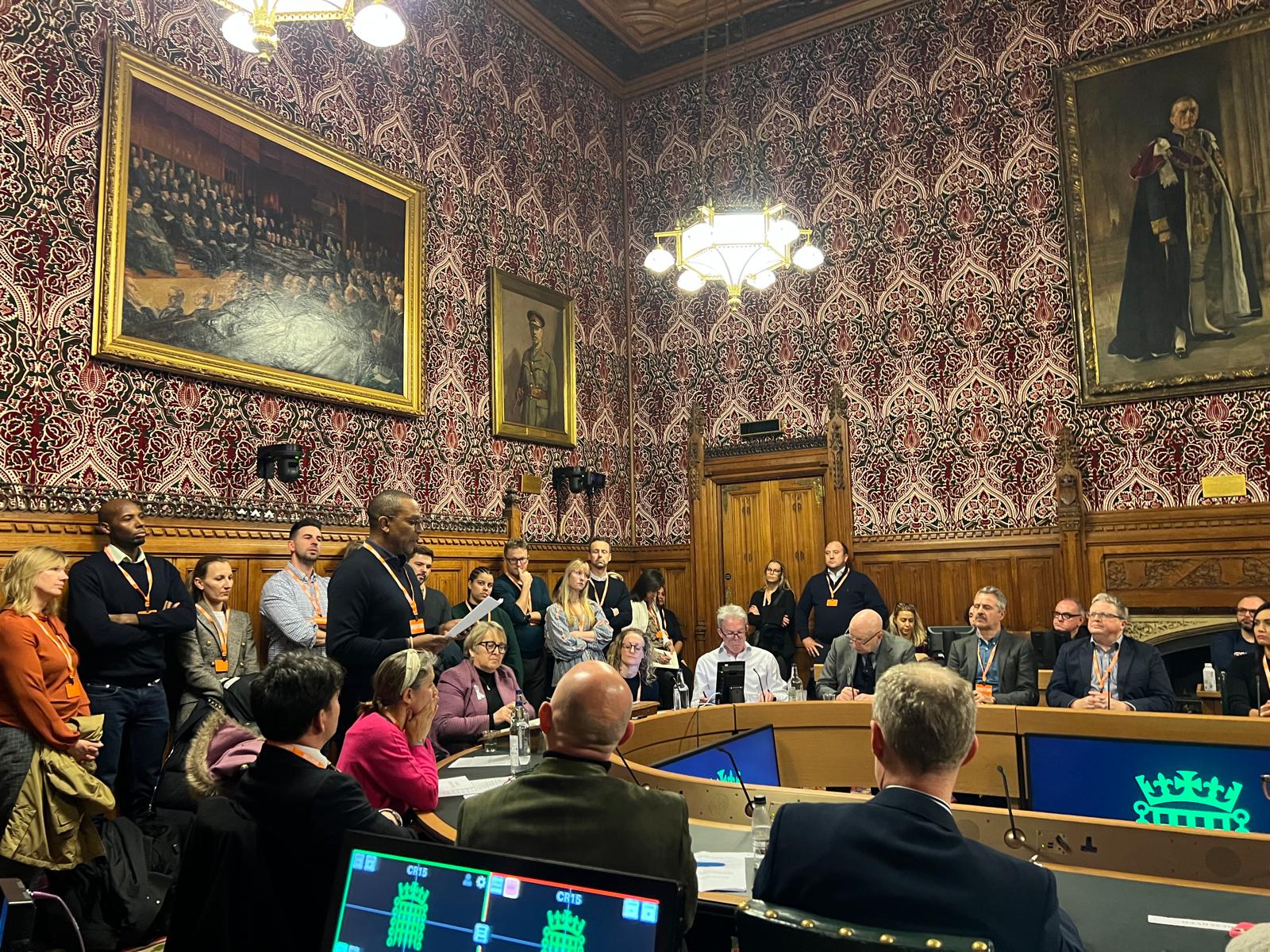Events
Greenwashing vs Greenhushing – Managing a Marketing Minefield

On Tuesday 26 November, I attended a Debating Group event at the Houses of Parliament hosted by the Chartered Institute of Marketing (CIM) and the International Advertising Association (IAA) that argued the motion: “Marketers’ fears of being accused of greenwashing hinders environmental progress.”
Chaired by Christine Jardine, the Liberal Democrat MP for Edinburgh West, there was an array of industry experts and regulatory representatives in the room. The speakers for the motion were Emilie Stephenson, ex-Head of Comms, Public Affairs and Sustainability at Innocent drinks, and Gerson Barnett, Executive Director at Right Thing Media – and against the motion were Gemma Butler, author, ex-CIM marketing director and sustainable marketer and Guy Parker, the Chief Executive at Advertising Standards Authority (ASA).
The Result
I will cut to the chase and say that after an enjoyable and comprehensive examination of the challenges faced by marketers in promoting sustainable and environmental practices, the speakers against the motion were judged to be the winners of the debate. However, these debates can often devolve into semantics of the specific question, and it seemed that the winning team convinced the audience that there is more than simply ‘fear’ that might be holding marketers’ efforts back - so I’d like to delve a little deeper into some of the interesting aspects raised for those not able to attend.
The Role of Fear in Marketing Decisions
One key argument was that while fear is a factor, it shouldn’t paralyse marketers. Brands were urged to collaborate with regulatory bodies like the Advertising Standards Authority (ASA) and educate themselves with the relevant guidance they provide (https://www.asa.org.uk/advice-online/environmental-claims-general-green-claims.html), and the Competition and Market Authority (CMA)’s Green Claim Code (https://www.gov.uk/government/publications/green-claims-code-making-environmental-claims) to help navigate sustainability marketing responsibly. Fear of greenwashing accusations has led many marketers to either oversimplify their sustainability claims or avoid them altogether. However, the panel emphasized that through proper education and adherence to standards, marketers can confidently communicate their sustainability efforts without overstepping the mark.
Greenhushing
The term “greenhushing” — describing companies’ reluctance to speak on their sustainability efforts — was mentioned as a growing concern. This trend highlights the complexity of balancing transparency with the risk of backlash. Companies opting for silence out of fear miss the opportunity to engage with customers on critical environmental issues. By choosing not to highlight their sustainability initiatives, brands may inadvertently contribute to the perception that they are doing nothing, thus undermining the genuine efforts being made.
Balancing Ambition with Caution
The event underscored the importance of blending ambition with caution. An interesting case study raised and discussed was that of Innocent drinks who were ruled against by the ASA in 2021 – full details of that case here: (https://www.asa.org.uk/rulings/innocent-ltd-g21-1111827-innocent-ltd.html). It states there that ‘Innocent Ltd responded that the ad set out a purpose-led message, which invited consumers to join in on its journey of working towards a healthier planet. They said that it had environmental credentials, which gave it the standing to make that invitation.’ However, it was ruled there was no suggestion in the ad through statements or imagery, that purchasing Innocent products themselves would lead to a positive environmental impact.
Working closely with experts and ensuring truthful sustainability messaging can help brands avoid the pitfalls of greenwashing. The Advertising Standards Authority's offer to provide pre-publication guidance on copy was cited as a valuable resource for marketers aiming to strike this balance. The notion is to be ambitious in setting sustainability goals, but cautious in how these are communicated to avoid misleading claims.
The Ultimate Responsibility
Ultimately, the responsibility falls on brands and their organizations to foster sustainable environmental practices that can be authentically promoted. This means embedding sustainability into the core of business operations, all the way from product design to supply chain management. Marketers can then leverage these authentic practices in their campaigns, ensuring that their messaging aligns with the company’s actual efforts. This holistic approach not only builds credibility but also contributes to the larger goal of combating climate change.
Conclusion
The debate shed light on the complexities of greenwashing and sustainability marketing. The prevailing view was clear: while fear of greenwashing accusations impacts marketers' willingness to engage in sustainability conversations, it should not be a deterrent to action. By educating themselves and adhering to standards, marketers can pave the way for authentic sustainability marketing, making a difference one honest campaign at a time.
The commitment to sustainable practices at every level will ensure that marketers have genuine, impactful stories to tell – helping bit by bit to build a more sustainable future.
Three Key Takeaways for Marketers
Transparency and Collaboration with Regulatory Bodies: Marketers must prioritize transparency in their sustainability claims. Collaborating with regulatory bodies like the ASA can provide essential guidance and help ensure that marketing messages are accurate and credible. This collaboration can prevent potential pitfalls and help build trust.
Educate and Empower Your Team: Continuous education on sustainability guidelines and standards is crucial. Empowering marketing teams with the latest knowledge on green marketing practices can help them craft messages that are both ambitious and realistic. This approach not only avoids greenwashing but also positions the brand as a responsible and informed entity.
Integrate Sustainability at All Levels: For sustainability marketing to be effective, it must be rooted in actual sustainable practices within the company. Institutions should embed sustainability into their core operations—from their products to their corporate practices. Marketers can then authentically promote these efforts, creating campaigns that resonate with their customers and stand up to scrutiny.
For a further deep dive into sustainability in financial services marketing, check out our podcast and interview article with Nicky Owen, Head of Strategic Sustainability Marketing at Standard Chartered.